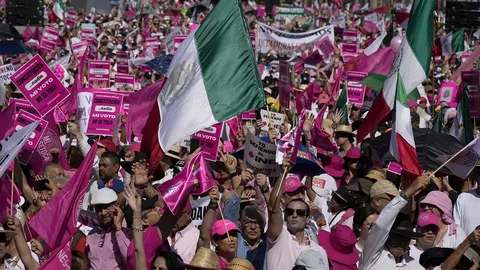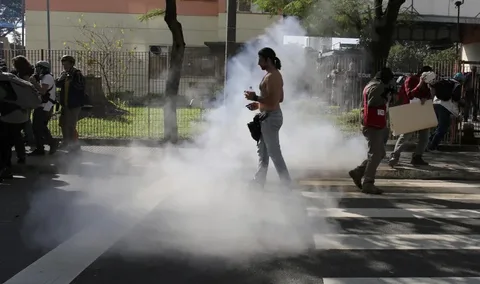World Cup 2026 protests in Mexico have erupted once again as thousands of residents took to the streets of Mexico City, voicing growing concerns over real estate speculation and displacement tied to the upcoming FIFA Tournament. The demonstrations are the latest in a series of mass mobilizations against housing inequality and unchecked development.

Protests in Mexico have primarily centred on gentrification and rental inflation in neighbourhoods such as Condesa, Roma, and Coyoacán. These once-local districts are now at the forefront of foreign investment, short-term rentals, and skyrocketing property values—resulting in the displacement of long-time residents and small businesses.
World Cup 2026 protests in Mexico Demand Action on Airbnb and Foreign Investment
World Cup 2026 protests in Mexico are also a response to the significant increase in short-term rental units, particularly through platforms like Airbnb. Protesters argue that the World Cup spotlight is accelerating the influx of digital nomads and investors, driving up housing costs. As a result, locals are being priced out of their own neighborhoods, with homes turned into profit-making assets.
Protests in Mexico have expanded to include opposition to infrastructure projects, such as the redevelopment of Estadio Azteca, which is slated to host several matches during the tournament. Activists warn that the World Cup-related developments risk displacing vulnerable communities, straining scarce water resources, and destroying vital green spaces. These impacts fall hardest on low-income residents who are already facing systemic inequalities.

FIFA World Cup 2026 protests in Mexico have surged online, fueled by viral videos of demonstrations. Hashtags like #MexicoNoSeVende and #WorldCup2026Protests are rallying support and drawing global attention. In response, city officials have proposed rent control laws and stricter regulations for Airbnb. However, protesters claim that enforcement remains weak and too slow.
Protests in Mexico go beyond a soccer tournament—they’re a fight for the right to stay in one’s home and for communities to resist displacement by profit-driven development. At their core, they demand urban policies that put people before capital. As the world’s eyes turn to Mexico in 2026, so too will its citizens continue to raise their voices.








